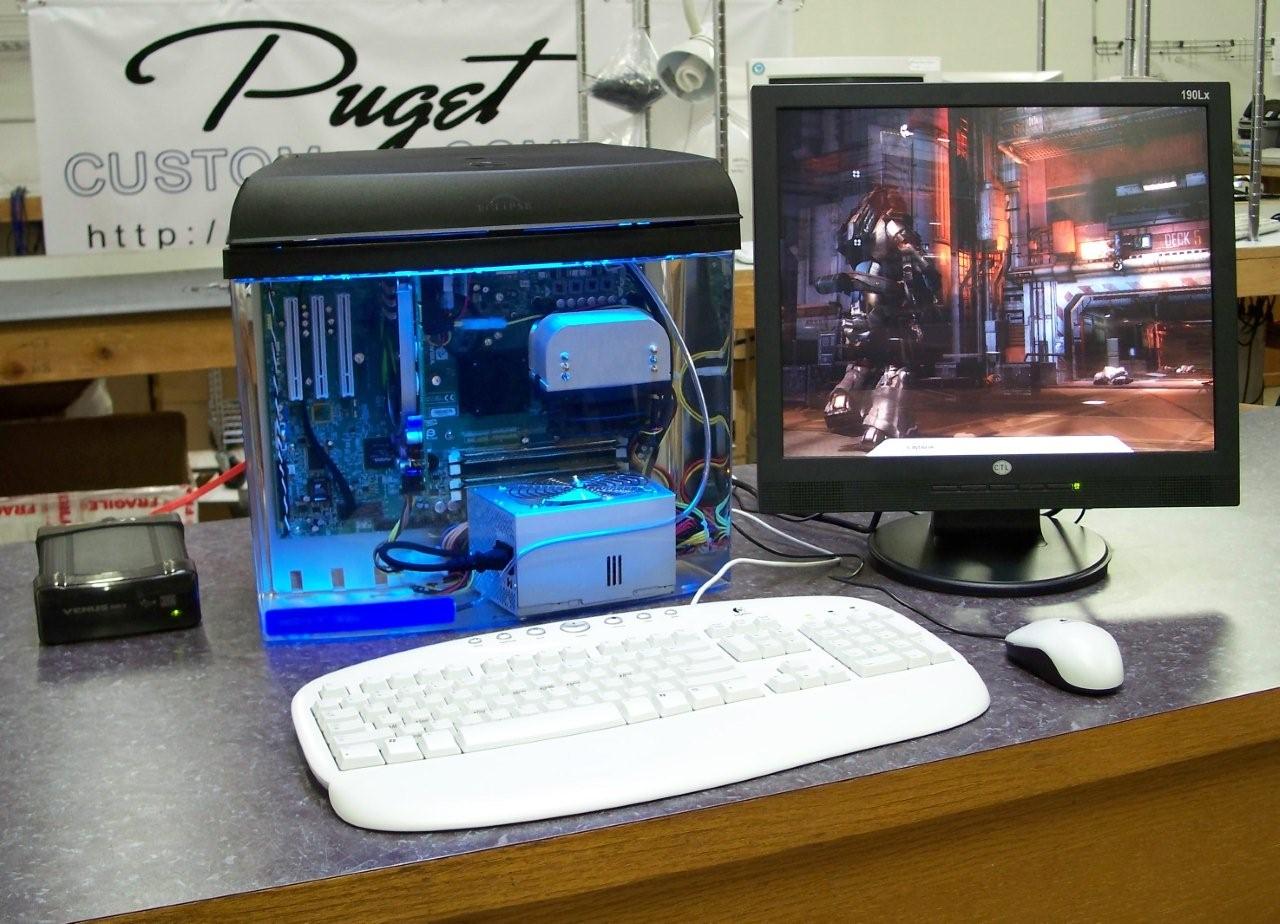After moving next to the beach in Hawaii, everything started to rust! I've spent the last three years trying to find computer components that won't disintegrate in a matter of months. Here's a little timeline of my rust adventure:
The first thing I noticed was my CPU coolers. When I moved out here I had a nice Zalman with copper fins. Sea air + copper = statue of liberty green:

I eventually figured out that if I got aluminum parts, they wouldn't rust as quickly. So I grabbed a beautiful Silverstone TJ09:

That worked well for a month or two, but then in the middle of an epic WoW session I glanced down at my case, and...



Looks like there are still quite a few steel parts on the Silverstone.
So then I thought to myself, "How about one of those Antec P180s? They look like they are mostly made out of plastic." Unfortunately, the fan brackets on the back are made out of steel so eventually the whole back side of the case rusted. I recently went at it with some steel wool and wd-40 but the rust came back in a few days.
Also, I have a CoolerMaster ATCS 840:

I figured out that the entire perforated top grille on the case is made of steel. Also the PCI card brackets and fan grilles.
So my question to the hardforum community is - Does anyone know of a case that won't rust?
The first thing I noticed was my CPU coolers. When I moved out here I had a nice Zalman with copper fins. Sea air + copper = statue of liberty green:

I eventually figured out that if I got aluminum parts, they wouldn't rust as quickly. So I grabbed a beautiful Silverstone TJ09:

That worked well for a month or two, but then in the middle of an epic WoW session I glanced down at my case, and...



Looks like there are still quite a few steel parts on the Silverstone.
So then I thought to myself, "How about one of those Antec P180s? They look like they are mostly made out of plastic." Unfortunately, the fan brackets on the back are made out of steel so eventually the whole back side of the case rusted. I recently went at it with some steel wool and wd-40 but the rust came back in a few days.
Also, I have a CoolerMaster ATCS 840:

I figured out that the entire perforated top grille on the case is made of steel. Also the PCI card brackets and fan grilles.
So my question to the hardforum community is - Does anyone know of a case that won't rust?
Last edited:
![[H]ard|Forum](/styles/hardforum/xenforo/logo_dark.png)



